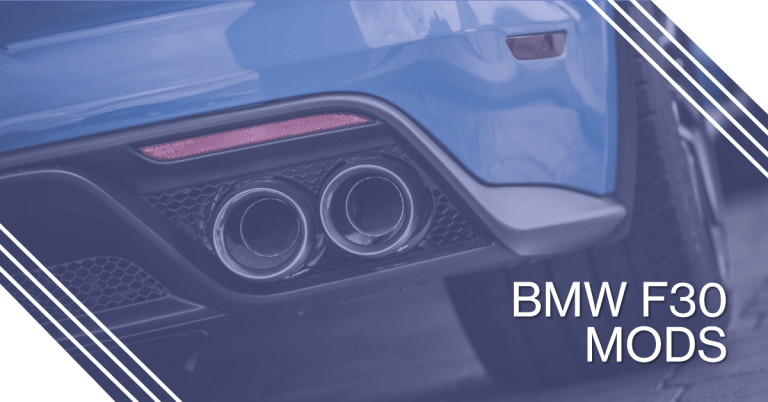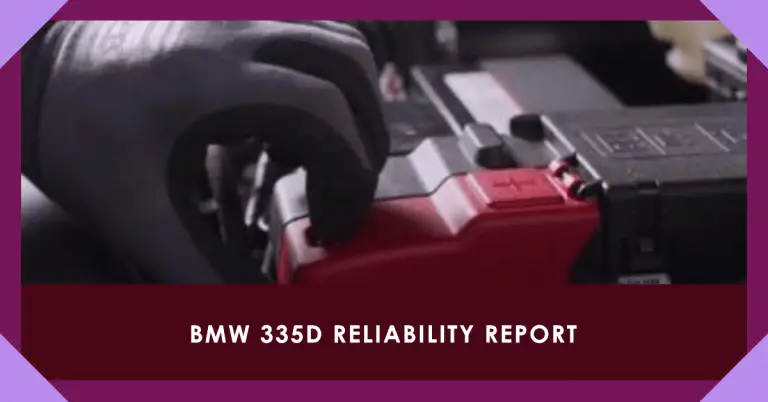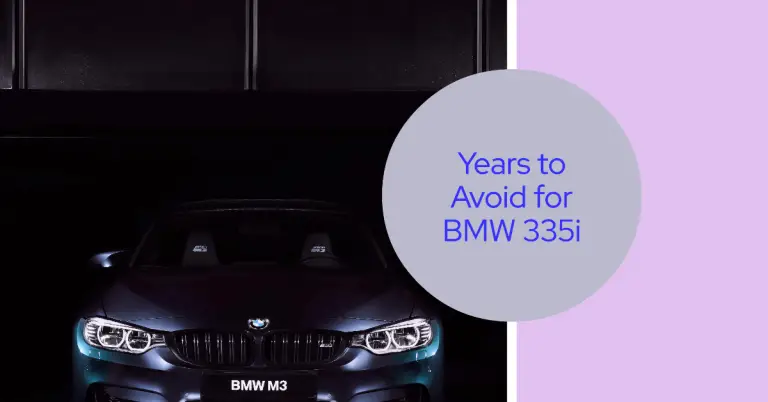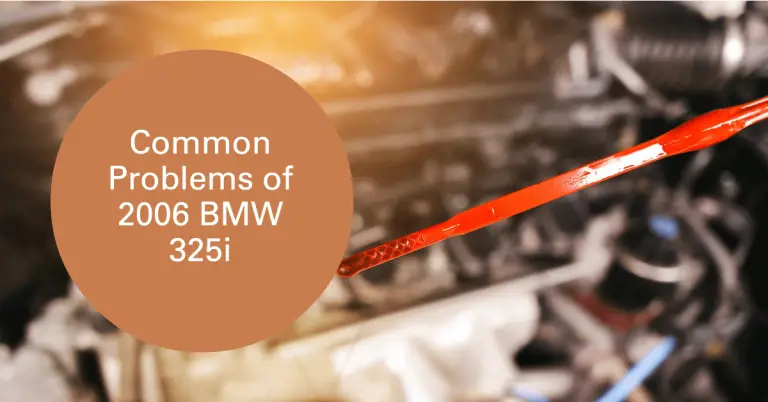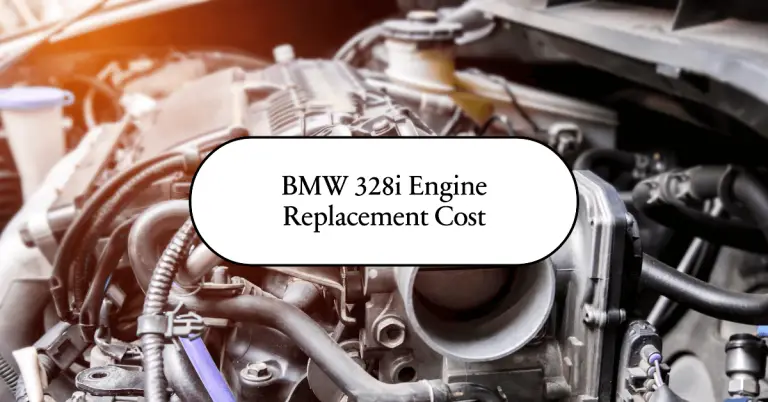340i BMW 0-60: A Quick Look at the Acceleration Performance
Are you considering buying a BMW 340i and want to know how fast it really is from 0-60 mph? Or maybe you’re a current 340i owner looking to learn more about your vehicle’s acceleration capabilities. Well, you’ve come to the right place!
In this detailed blog post, we’ll be taking an in-depth look at 340i acceleration, including:
- An overview of published 0-60 mph and 0-100 km/h times for different 340i model years
- The key factors that impact the 340i’s 0-60 time performance
- How the 340i stacks up in quarter mile times
- And more!
By the end, you’ll have a solid understanding of just how quick the 340i sedan can accelerate, as we dig into real world test results, specifications, and reviews. Let’s get to it!
An Overview of 0-60 MPH and 0-100 km/h Times by Model Year
As BMW’s sportiest 3 Series sedan, the 340i is renowned for its nimble handling and thrilling acceleration. But exactly how fast can this sports sedan go from 0-60 miles per hour? And how do the times compare across different model years?
Here’s a look at published 0-60 mph and 0-100 km/h times for recent 340i models:
- 2018 BMW 340i 0-60 time: 4.6 seconds
- 2018 BMW 340i 0-100 km/h time: 4.8 seconds
- 2019 BMW 340i 0-60 time: 4.2 seconds
- 2019 BMW 340i 0-100 km/h time: 4.6 seconds
- 2020 BMW 340i 0-60 time: 4.1 seconds
- 2020 BMW 340i 0-100 km/h time: 4.4 seconds
- 2021 BMW 340i 0-60 time: 4.3 seconds
- 2021 BMW 340i 0-100 km/h time: 4.6 seconds
As you can see from the data, the 340i has consistently delivered quick 0-60 mph acceleration in the low to mid 4 second range. The 0-100 km/h time is usually just a tick slower than 0-60 mph, clocking in around 4.5-4.8 seconds on average.
Over the past few model years, the 340i has inch closer and closer to the elusive 4 second 0-60 mph mark – an impressive feat for a practical mid-sized sedan!
Clearly this BMW can sprint from a standstill very quickly in real world driving conditions. But what exactly accounts for the minor differences in acceleration by model year?
What Factors Impact the 340i’s 0-60 Times?
While BMW has fine-tuned the 340i sedan over the years, a few key variables determine each model’s unique 0-60 time performance:
- Engine Power and Torque Output: More horsepower and torque equals quicker acceleration. BMW has squeezed out small gains in power from the 340i’s 3.0L turbocharged inline-6.
- Vehicle Weight: Less mass to move means faster acceleration. BMW has employed lightweight materials and techniques to slightly reduce curb weight.
- Transmission Type: The 340i uses a quick-shifting 8-speed automatic across model years. This aids in acceleration.
- Drive Type: 340i models are exclusively rear-wheel drive. RWD enables better traction and faster acceleration than front-wheel drive.
- Model Year Improvements: Year-to-year tweaks to the engine, transmission, suspension, and more incremental optimization also impact 0-60 times.
So in summary, increases in power and torque numbers paired with slight decreases in curb weight have allowed BMW to extract small 0-60 mph improvements year over year. Advanced engine and transmission tech also help lower times.
Quarter Mile Acceleration: How Quickly Does the 340i Complete the 1/4 Mile?
Beyond short 0-60 mph sprints, the quarter mile (1/4 mile) drag race is another important acceleration benchmark.
Here’s a look at recent 340i quarter mile times:
- 2018 BMW 340i 1/4 mile time: 13.1 seconds
- 2019 BMW 340i 1/4 mile time: 12.9 seconds
- 2020 BMW 340i 1/4 mile time: 12.7 seconds
- 2021 BMW 340i 1/4 mile time: 12.8 seconds
Running the quarter mile in the low to mid 12 second range is seriously quick for a luxury sports sedan. To cut these times, vehicles need strong acceleration across the entire power band, not just off-the-line punch.
The 340i delivers excellent mid-range acceleration to pair with its quick 0-60 mph time, allowing it to nearly hit 120+ mph by the end of the quarter mile.
So in both short sprints and longer runs, the BMW 340i shows it has acceleration chops to spare. Exactly how does this stack up to rivals?
How 340i Acceleration Compares to Rivals Like the Audi S4
The BMW 340i plays in an ultra-competitive segment alongside acceleration standouts like the Audi S4 and Mercedes C43 AMG.
So how does the 340i compare?
The current Audi S4 hits 60 mph in 4.4 seconds – slightly ahead of recent 340i times. But the BMW matches or beats the S4 in the quarter mile, crossing the line in 12.7-12.9 seconds based on estimates.
The outgoing Mercedes C43 AMG reached 60 mph in 4.6 seconds, essentially tied with 340i times. But again the BMW has a slight quarter mile advantage.
While the Audi S4 and Mercedes C43 are very quick, the BMW 340i proves it can hang with these sports sedan rivals in both 0-60 mph and quarter mile metrics. And it offers a more engaging, rear-wheel drive experience on twisty roads.
Diving Deeper into Factors That Enable Quick 340i Acceleration
We’ve established that the BMW 340i is seriously swift in real world acceleration, both from 0-60 mph and in the quarter mile. But what specifically allows this sports sedan to post such quick times year after year?
Here’s a deeper look at the key technical elements that enable the 340i to accelerate so rapidly:
Powerful Engine Delivers Instant Thrust
The heart of the 340i is its 3.0L TwinPower turbocharged inline 6-cylinder engine. This smooth powerplant generates robust thrust across the entire rpm band:
- Peak Power: 322 horsepower at 5,500 rpm
- Peak Torque: 332 lb-ft from 1,380-5,000 rpm
This high torque output starting at just 1380 rpm enables the 340i to accelerate forcefully right off the line. And continued power delivery pushes the sedan down the drag strip.
Quick-Shifting 8-Speed Automatic Transmission
Harnessing the engine’s power is an advanced ZF 8-speed automatic transmission. With closely spaced gears, this transmission helps keep the engine in its ideal power band.
Seamless, rapid-fire gear changes pair with a performance-oriented manual mode for control. This transmission plays a key role in swift acceleration.
Rear-Wheel Drive Offers Traction Advantage
Unlike many rivals, the BMW 340i utilizes a rear-wheel drive platform. The 340i is able to put more power down to the pavement thanks to weight sitting over the rear tires.
This traction advantage is especially helpful in acceleration runs, enabling stronger launches and quicker 0-60 times.
Efficient xDrive AWD Also Available
While the standard 340i is RWD, BMW also offers all-wheel drive versions called 340i xDrive. AWD improves poor weather traction, though acceleration times are a tick slower.
Factors That Can Influence Acceleration Beyond Factory Specs
So far we’ve looked at published acceleration specs from BMW. But in reality, there are a few additional variables that can alter 340i acceleration performance:
- Driver Ability: An experienced driver who can optimize launch conditions and perfectly execute shifts will post better times than novices.
- Environment: Accelerating on a warm, dry surface will enable better grip and quicker times compared to low temperatures or moisture.
- Vehicle Condition: Acceleration may degrade slightly over time if engine power drops or curb weight increases. Proper maintenance is key.
- Modifications: Aftermarket parts like lighter wheels, performance tires, and ECU tuning can potentially improve acceleration. But this voids the factory warranty.
While factory 0-60 and quarter mile figures provide useful benchmarks, real-world conditions and these other factors ultimately impact observed acceleration.
Reviewing Acceleration Specs for Different 340i Trim Levels
Up to this point, our 0-60 mph and quarter mile discussion has centered around the standard BMW 340i without regard to trim levels.
But BMW does offer the 340i in different model variants, so are there any acceleration differences between trims?
Here’s an overview:
- 340i: 4.2-4.6 seconds 0-60, 12.7-13.1 quarter mile
- 340i xDrive: 4.5-4.8 seconds 0-60, 13.0-13.4 quarter mile
- 340i M Sport: 4.2-4.6 seconds 0-60, 12.7-13.1 quarter mile
As shown, the RWD 340i and top-level M Sport model offer essentially equivalent acceleration. The xDrive all-wheel drive model is slightly slower as expected.
And acceleration is unchanged across luxury or tech package upgrades. So buyers can optimize features without sacrificing performance.
6 Ways to Get the Most Acceleration From Your BMW 340i
If you own a 340i and want to experience maximum acceleration, here are six tips:
- Activate Sport Mode which quickens throttle response.
- Choose Dynamic Driving mode to firm up adaptive suspension.
- Lower traction control settings for harder launches.
- Use Launch Control to optimize off-the-line acceleration.
- Shift manually at redline to keep engine RPM in power band.
- Upgrade to high-performance tires for enhanced grip.
While not necessary to enjoy potent 340i acceleration, these tips will help skilled drivers maximize their BMW’s performance potential.
Conclusion
In this detailed post, we took an in-depth look at real world BMW 340i 0-60 mph times and quarter mile performance.
The key takeaways around this sports sedan’s acceleration:
- 0-60 mph times consistently fall in the low-to-mid 4 second range – very quick for the class.
- Quarter mile times land in the high 12 second range, reflecting strong mid-range power.
- Factors like engine output, curb weight, RWD, and transmission all enable swift acceleration.
- The 340i matches up well with rivals like the Audi S4 and Mercedes C43 AMG.
So for shoppers desiring exhilarating acceleration in a practical luxury sedan, the BMW 340i warrants a hard look. This BMW combines potent performance, agile handling, and everyday comfort into a compelling overall package.


